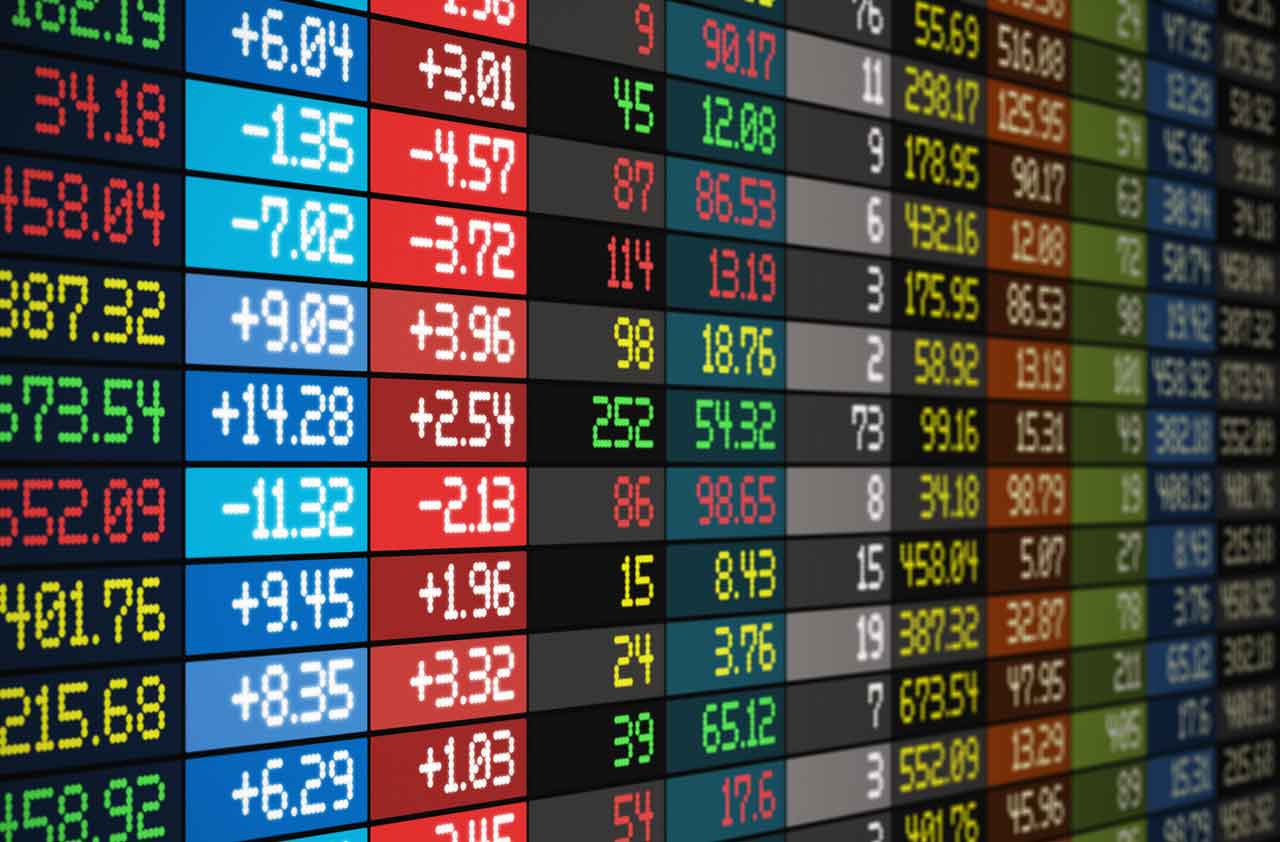6 Bond Funds to Boost Your Income
In part because of the election of Donald Trump, the yield on U.S.


Profit and prosper with the best of Kiplinger's advice on investing, taxes, retirement, personal finance and much more. Delivered daily. Enter your email in the box and click Sign Me Up.
You are now subscribed
Your newsletter sign-up was successful
Want to add more newsletters?

Delivered daily
Kiplinger Today
Profit and prosper with the best of Kiplinger's advice on investing, taxes, retirement, personal finance and much more delivered daily. Smart money moves start here.

Sent five days a week
Kiplinger A Step Ahead
Get practical help to make better financial decisions in your everyday life, from spending to savings on top deals.

Delivered daily
Kiplinger Closing Bell
Get today's biggest financial and investing headlines delivered to your inbox every day the U.S. stock market is open.

Sent twice a week
Kiplinger Adviser Intel
Financial pros across the country share best practices and fresh tactics to preserve and grow your wealth.

Delivered weekly
Kiplinger Tax Tips
Trim your federal and state tax bills with practical tax-planning and tax-cutting strategies.

Sent twice a week
Kiplinger Retirement Tips
Your twice-a-week guide to planning and enjoying a financially secure and richly rewarding retirement

Sent bimonthly.
Kiplinger Adviser Angle
Insights for advisers, wealth managers and other financial professionals.

Sent twice a week
Kiplinger Investing Weekly
Your twice-a-week roundup of promising stocks, funds, companies and industries you should consider, ones you should avoid, and why.

Sent weekly for six weeks
Kiplinger Invest for Retirement
Your step-by-step six-part series on how to invest for retirement, from devising a successful strategy to exactly which investments to choose.
In part because of the election of Donald Trump, the yield on U.S. bonds—the percentage of your investment you get for holding them—has soared. For bond investors who seek relatively high income without taking inordinate risks, that spells opportunity.
You should be gradually filling out your long-term portfolio with more debt. Consider my eclectic mix of bond funds here, including mutual funds and exchange-traded funds that focus on investment-grade bonds, high-yielding "junk" bonds or tax-free municipal bonds.
Pick a mix of our six to match your desire for yield and tolerance for risk.
(All yields and prices are as of December 31.)

iShares iBonds Corporate ETF
- Symbol: IBDM
- Price: $25
- Yield: 2.7%
- Expense ratio: 0.10%
One way to hedge against interest rate risk is to buy bonds that mature at intervals, a strategy called laddering. Say you buy five bonds, with the first maturing at the end of 2017, the second at the end of 2018 and so on. As each bond matures, you get your principal back and reinvest it in a new bond that matures five years later. That way, if rates rise, the last bond you purchase will carry a higher yield.
Some fund sponsors make laddering easier. For example, BlackRock offers exchange-traded funds with portfolios of corporate bonds that all mature in a specific year. One such fund is iShares iBonds Dec 2021 Term Corporate ETF. The fund, which yields 2.7% and costs just 0.10% annually, is a member of the Kiplinger ETF 20. Owning similar ETFs up and down a ladder of years can mitigate rate risk.

SPDR Bloomberg Barclays High-Yield Bond
- Symbol: JNK
- Price: $36
- Yield: 5.7%
- Expense ratio: 0.40%
Deciding whose bonds to buy is also tricky. U.S. government bonds are relatively straightforward, but corporate bonds carry the risk of default. The riskier the bond, the higher the rate a corporation must pay to entice you to own it. You should buy high-yielding corporate debt—known as junk bonds—only through a diversified fund, such as SPDR Bloomberg Barclays High-Yield Bond ETF.

Vanguard High-Yield Corporate
- Symbol: VWEHX
- Yield: 5.0%
- Expense ratio: 0.23%
Another junk bond fund to consider is Vanguard High-Yield Corporate, a member of the Kiplinger 25, is one of the tamer funds in this junk category, opting largely for debt just below investment grade. But with less risk come lower returns than the SPDR ETF.

Fidelity Corporate Bond
Symbol: FCBFX
- Yield: 3.2%
- Expense ratio: 0.45%
Investment-grade bonds carry less risk but also pay less. Fidelity Corporate Bond has a portfolio with a median maturity of seven years and holds nearly all single-A- or triple-B-rated bonds. That seems to be the sweet spot in the market, without too much interest rate risk or credit risk (the chance that a bond’s issuer will default).

Fidelity Investment Grade Bond
Symbol: FBNDX
- Yield: 2.2%
- Expense ratio: 0.80%
Federal agency bonds, such as those issued by the Tennessee Valley Authority, are supersafe and yield a bit more than Treasuries. Fidelity Investment Grade Bond is a mutual fund that leavens its mixture of Treasuries and corporate bonds with some excellent agency debt.

T. Rowe Price Tax Free Income
Symbol: PRTAX
- Yield: 2.3%
- Expense ratio: 0.52%
Municipal bonds, issued mainly by city and state governments and their agencies, have default risk, too, but less than with corporate IOUs. Plus, muni prices tend to decline less than Treasury prices if rates rise because higher inflation provides a better environment for states to raise tax dollars to fund the bonds. The advantage of munis is that their interest payments are generally free of federal income taxes and may be free of state and local taxes as well.
A good mutual fund choice for muni investors is T. Rowe Price Tax-Free Income, which combines high credit quality with maturities averaging in the 15-to-20-year range. Its yield of 2.3% translates to 4.0% for an investor in the top federal tax bracket.
Profit and prosper with the best of Kiplinger's advice on investing, taxes, retirement, personal finance and much more. Delivered daily. Enter your email in the box and click Sign Me Up.

-
 Ask the Tax Editor: Federal Income Tax Deductions
Ask the Tax Editor: Federal Income Tax DeductionsAsk the Editor In this week's Ask the Editor Q&A, Joy Taylor answers questions on federal income tax deductions
-
 States With No-Fault Car Insurance Laws (and How No-Fault Car Insurance Works)
States With No-Fault Car Insurance Laws (and How No-Fault Car Insurance Works)A breakdown of the confusing rules around no-fault car insurance in every state where it exists.
-
 7 Frugal Habits to Keep Even When You're Rich
7 Frugal Habits to Keep Even When You're RichSome frugal habits are worth it, no matter what tax bracket you're in.
-
 Best Mutual Funds to Invest In for 2026
Best Mutual Funds to Invest In for 2026The best mutual funds will capitalize on new trends expected to emerge in the new year, all while offering low costs and solid management.
-
 The 24 Cheapest Places To Retire in the US
The 24 Cheapest Places To Retire in the USWhen you're trying to balance a fixed income with an enjoyable retirement, the cost of living is a crucial factor to consider. Is your city the best?
-
 Smart Ways to Invest Your Money This Year
Smart Ways to Invest Your Money This YearFollowing a red-hot run for the equities market, folks are looking for smart ways to invest this year. Stocks, bonds and CDs all have something to offer in 2024.
-
 Vanguard's New International Fund Targets Dividend Growth
Vanguard's New International Fund Targets Dividend GrowthInvestors may be skittish about buying international stocks, but this new Vanguard fund that targets stable dividend growers could ease their minds.
-
 Best 401(k) Investments: Where to Invest
Best 401(k) Investments: Where to InvestKnowing where to find the best 401(k) investments to put your money can be difficult. Here, we rank 10 of the largest retirement funds.
-
 7 Best Stocks to Gift Your Grandchildren
7 Best Stocks to Gift Your GrandchildrenThe best stocks to give your grandchildren have certain qualities in common. Here, we let you know what those are.
-
 How to Find the Best 401(k) Investments
How to Find the Best 401(k) InvestmentsMany folks are likely wondering how to find the best 401(k) investments after signing up for their company's retirement plan. Here's where to get started.
-
 How to Master Index Investing
How to Master Index InvestingIndex investing allows market participants the ability to build their ideal portfolios using baskets of stocks and bonds. Here's how it works.
